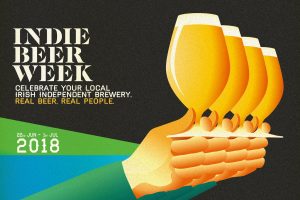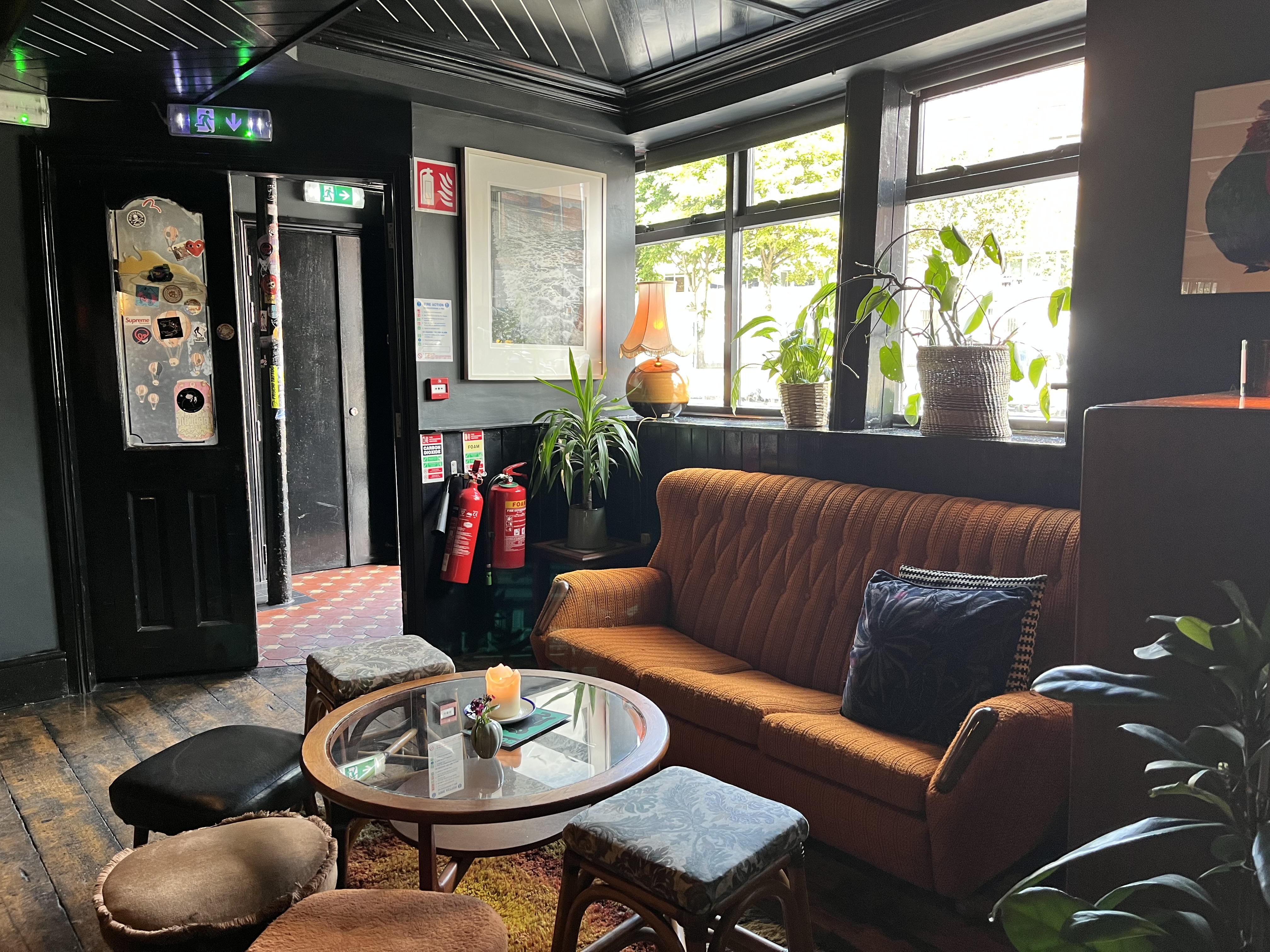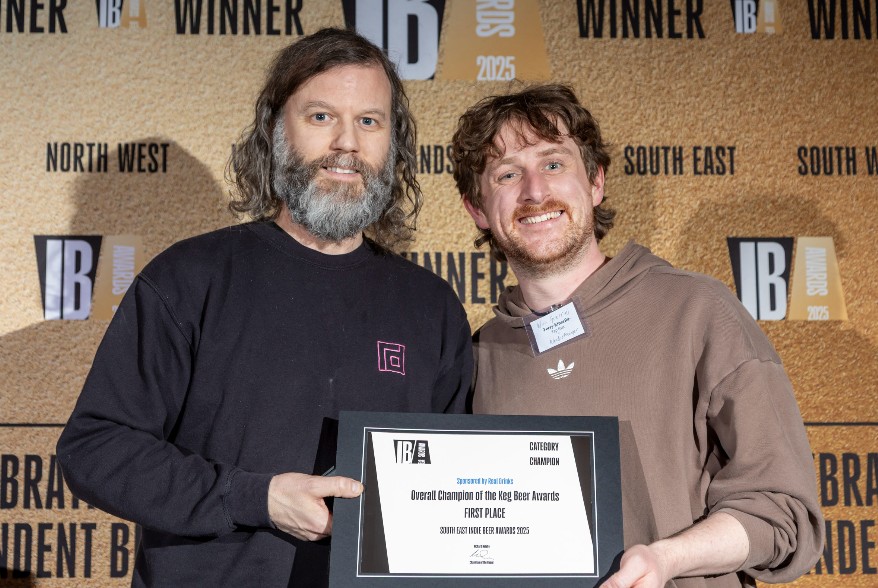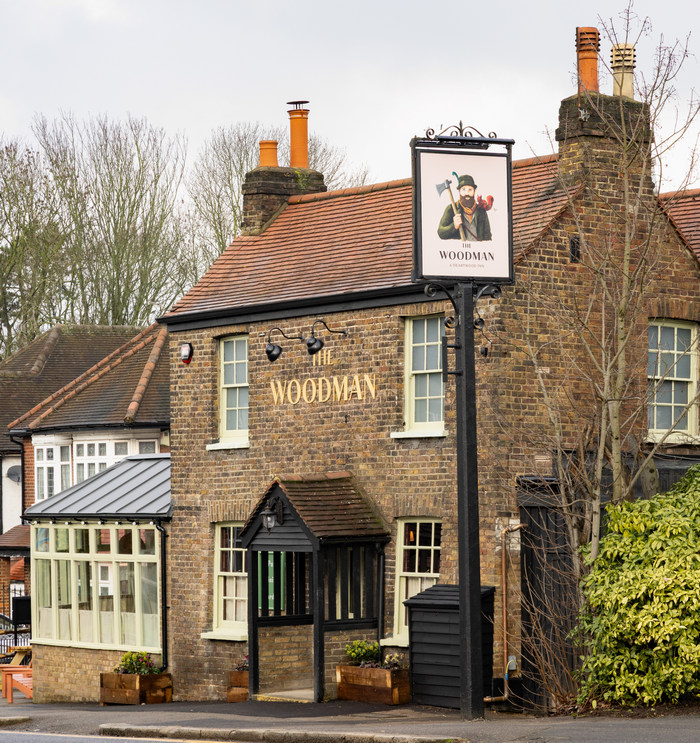Having recently came across some older, unpublished material, it got me thinking: why didn’t I post this? What was going through my head? What has changed since then and why haven’t I blogged in so long?
Answer: procrastination.
If you exclude the pieces about Brewbot& the transition to Northern Lights, there has not been any new content since Boundary’s crowdfunding three years ago. These three years have been filled with massive changes to our bar scene, how we as consumers perceive ‘craft beer’ (for want of a better phrase) and changes in the NI beer landscape – all of which have led me to this open discussion piece.
One of the many reasons why I started blogging and in turn founded the BelfastBeerBlog was to help show people that there is much more to beer than the usual ‘Harp Ice’, ‘Guinness’ or even ‘Carlsberg’.
Having spent considerable time in the drinks industry within Belfast, one of my first roles was working in an Off Sales. To this day I still remember my first day; I was completely overwhelmed by the sheer volume & variety of wines, spirits & liquors I was faced with.
Full of optimism and enthusiasm, I started discussing how much I enjoyed rum and that Captain Morganswas one of my favourite rums to drink….
This instantly conveyed to my colleagues that I knew absolutely nothing about rum, nevermind spirits; and opened my eyes to the fact that ‘Captain Morgans’wasn’t necessarily a good brand, but just a very well marketed brand. I had associated good marketing with the product being good – which is not always the case!
Why am I talking about ‘Captain Morgans’ on a beer blog? Well it’s actually to highlight, not only my naivety, but how excellent marketing and product placement has been influential on our purchases over the years.
Let’s face it; we see ads everywhere we go, on TV, our smartphones, on the Internet etc. So regardless of whether we like or dislike a brand, a well marketed brand will likely draw some sort of action from us such as: ‘Sick of seeing that ad’, ‘Oh, did you see that new ad for Product x?’
But what about the brand(s) you didn’t see an advert for? Does that mean they are inferior to the ones you see everywhere?
To put it simply, No*
(*This is all subjective to personal taste of an individual brand or product)
During my time at the off sales, we always had the usual suspects (Guinness, Carlsberg, Smirnoffetc.) on offer and our majority of sales came through these established brands – well until the student loan ran out and it was all ‘whatever is cheapest mate!’.
During a long stock take, mid discussion with my supervisor, I noticed a bottle of ‘Weissebier’ (I did not pronounce it correctly) and the conversation quickly turned into a review on the beer.
Straight to the point, he told me it was completely different to 95% of the beers here and I should take a few home and try them out. With that in mind, I bought a few bottles and did exactly that, and to this day I can still recall the conversation I had with my flatmates that it didn’t taste like anything we’d had before! It genuinely baffled me that what I defined ‘beer’ as, was actually only one small piece of the ever-developing beer puzzle.
From that day onwards I started seeking out new beers, different styles and asking why didn’t I know about this beer?
In Northern Ireland, we have a very different bar scene to the rest of the UK & our good friends in the Republic. This stems from many avenues, but for now, I am going to focus on the macro’s strong-hold over bars/pubs and restaurants.
Across Northern Ireland, many bars have actual ties with the owner/distributor of these brands (Tennents, Diageo, Coorsetc.). What tends to happen is the licence owner(s) or potential owner(s) may want to revamp their premises, take over new premises or just want better priced kegs/products etc. They reach an agreement, whether its money towards the rebuild, rebrand, lines or even a lower price on their products/kegs but that comes with a catch.
Normally they restrict the number of brands or products that the bar can serve outside of their portfolio, this may be on tap or bottle lines.
Article: ‘Drinks giant branded a bully for Arthur’s Day cover-up of rivals’ by John Mulgrew for the Belfast Telegraph
Within Northern Ireland, draught has always been key and this is normally where the stipulation falls under for the licence owner(s)/macro owner/distributor.
This process allows the owner(s) to do what their intended desire was, but leaves a lot to be said for new entrants into the market.
This, arguably, restrictive approach has been happening for years, much longer than I have been drinking, never mind been on this earth. It has developed relationships with bar owners over the years or in some cases, even generations of owners, which has inadvertently created a constrained marketplace with regards to not only choice but the actual owners of bars as well.
Over the years we have seen bars change hands or disappear, but some of the most visited and sought-after bars actually have the same licence owner and arguably have the overall control of what the bar may represent with regards to stock etc.
This is a very brief overview of what can happen sometimes and not what always happens within the NI bar scene.
Another issue within NI is licensing; we only have a certain number of licenses available here and as mentioned before many are actually owned by a somewhat exclusive few who have an arguable stronghold over the market.
Another consideration is the availability of licenses within NI compared to that of the mainland UK. NI licenses are not readily available and normally occur at a high asking price whenever one does become available.
See Slugger O’Toole’s post hereon stumbling across an NI drinks license for £80,000.
In addition, we have restrictive trading at specific times of the year, our licensing hours differ from the rest of the UK and this is something I will not go into further as there is ample amount of material on these specific areas online already.
We have seen a recent rise in breweries over the last few years in Northern Ireland, Roy @Quareswally(02/03/18) has a list here (some I would debate are not still in operation, but this is subject to confirmation).
So, taking Roy’s list, we have 24 breweries, 7 contract-based breweries & 4 brewpubs but for this discussion, I will set aside brewpubs.
For the 24 breweries, how many brands/products do they each have? What is their average lifespan? What styles are they?
If every brewery had 3 beers then we would have 72 different beers from NI breweries, do we have enough taps for them all? – no, as the majority of the lines are tied**
(**not every bar/restaurant)
Do we have enough shelf space for them? At a push, you could possibly have one of each but the likelihood of having the option of buying one of every single beer available in NI is not practical or sustainable for all parties involved.
Why are you telling me this, what can we do?
As mentioned before, I was driven to find out more about different beers; I jumped in blindfolded and honestly, it was all a bit chaotic and confusing. It wasn’t until I found a few like-minded early adopters that advised me on more useful resources and breweries to seek out in my bid to research beer further.
This was dynamic in my own path within the industry, but what about everyone else? How can we show there is much more to beer than what they know?
Well in my eyes it can be simply put down to education, I am a firm believer that knowledge is power and within this arguably restrictive industry we have been besieged by advertising and strangled by corporations for too long.
Education offers us an out and a starting point to move beyond the Macro corporations within beer. With that in mind I want to make it clear that I am not saying everyone should not drink macro beer – each to their own – rather, I want to give them the option of moving outside the bubble of ‘beer is this!’ or ‘this is all beer has to offer’.
Education is great, but what exactly am I referring to? For me, it’s the key details on the brewing process, the ingredients, highlighting differing styles & their characteristics and what sets the beer apart from a mass-produced lager!
But how can we find this information out?
Consider this very basic overview of the journey that beer may take to get to you:
On the basic level we have: Brewery -> Distribution-> Consumer
Let’s look at this in reverse, how do we as a consumer seek out products? Local Off sales, bars/pub/restaurant, supermarkets etc. so what info can we source from here?
Consider the role of the bar manager/tender; they act as an intermediary between you and your choice of drink/food etc. In our local scene we see a variety of products across the fridges, shelves or on tap and sometimes we genuinely have no idea what it is or what it tastes like. Depending on the individual determines how/what they order, for example, we have the die-hards who drink what they know and that’s it, the ‘open to anything’ who are just happy to be there, the ‘explorer’ who finds joy in trying new things out at least once, and so on.
The bartender shares their own experiences of the products, which could be from further research or even a regurgitated marketing spiel to make you aware of the offerings at their establishment. It’s good business to have staff trained and understand the products they sell, this ensures maximum sales potential, which reduces stock holding and keeps cash flowing through their tills. Yet I find that even today on occasion, there is some sort of reluctance from individual bar owners/managers in educating the consumer/their team and are happy to just pour the pints, and ensure stability through tried and tested methods.
This model is fine but these bars may struggle to keep interest as the consumer develops new tastes/interests that lead them out of their ‘market reach’. I am not saying that every bartender needs to have an in-depth knowledge about every single product, it would be awesome but not realistic, but at least have some sort of fundamental knowledge of their core products or new products to ensure that the brand has a chance to develop.
Moving back up this basic overview to the role of distributors; they come in and discuss their portfolio to the bars/off sales etc and try to find a route for their products to market. In days of old, a lot of this would have been driven on best pricing got you the deal – but as the consumer appetite and interests have changed, so too has the role of the distributor, particularly within the ‘craft sector’. It is simply not enough to have a portfolio with products deemed as ‘craft’ to generate interest – they are acting on behalf of the brands they represent, and so take the brand’s ethos, and story across to the potential buyer.
Some do this by offering in-house training to help the bartenders be aware of what the product is, or introduce new concepts to them. They also allow for event curation such as meet the brewer events, pop-up markets, beer festivals, beer clubs and beer/food pairing dinners.
Consider if the distributor did not do this – what chance does the brand have from leaving the source to grow within the industry? Very little.
Taking it back to the brewery, they make beer – that’s it right?
It’s much more complex than that. Many that are in operation are a small team and must balance a variety of roles such as brewer/head of sales/quality control/head of marketing etc. to help ensure their product reaches the marketplace.
Take, for example, the use of ingredients; why would you want to know that? Its only beer!
Genuinely you would be surprised what you can find in beers these days, after drinking a Lime Hibiscus & Chilli Goselast night I can confirm it was a welcome reminder that beer is much more than Hops/Water/Yeast/Malt.
Some of us want to know more about what we are drinking, whether its for that latest badge on untapped, to discuss with your friends or even need to know these for dietary requirements/health concerns etc.
Looking at ingredients initially to try and give a fuller picture; ingredients play a vital role within beer, simple alterations or techniques can change a beer completely, not only in taste, but complexity too.
This is where communication from the brewery to the consumer is vitally important. Take ‘sour beers’ for example, we have seen a rapid increase in these beers appearing across our shelves, without the information on the label, communication via social media/blogs or information from the distribution network we may easily mistake it as just another ‘beer’.
The consumer would surely have a shock to the system if they drank a ‘Salty Kiss’ for the first time if they were unfamiliar with the style or the taste profile.
The main aspect from the brewery side of things is that transparency of their products, ingredients, processes etc help build the community with regards education and is likely to create a bond with their consumers.
Initially, our simple overview has been developed into:
Ingredients –> Brewery –> Brew –> Packaging/Conditioning –> Distribution Network ->Bar/Pubs/Restaurant -> You the consumer
Courtesy of Warren Curry Illustration
After finishing off my degree in Manchester I returned to Belfast having, what can only be described as beer envy. In the time I had left Belfast, it had become ripe with opportunity and insight such as meet the brewer events, pop-up markets, new breweries and beer/food dinners. I genuinely had a beer events tab on my calendar to ensure I could make such events.
One of the first opportunities I found in NI was@BeerClubBelfast, a monthly event at Hudson/Sunflower/American Bar, where a series of beers would have been sampled covering a variety of different styles or providing an insight into a particular new brewery entering the NI marketplace.
Personally, I found this super insightful, particularly for trying to understand what beer has to offer, what was accessible to the local bars and identifying key players in the trade.
Another great opportunity was working with distributors that went beyond their remit for their brands., In particular, highlighting Nelson Sauvin& Prohibition, where respectively between them, the NI beer scene would not be as accessible if it was not for them – they introduce us to such brands as Beavertown, Kernel, Cloudwater, Tiny Rebel, Magic Rockand Northern Monk, to name but a few. They have also brought these brands and much more to our local scene through events such as meet the brewer, beer dinners and appearances at NI beer festivals. This has allowed the scene to develop, introduce new consumers to the marketplace, increased variety and helped showcase what products are available outside of NI.
Lastly was the development of the beer festivals in Northern Ireland; a series of festivals of differentiating tiers to appeal to the masses, the geeks and those who fall in between. ABV festivalin my eyes is one of the best beer festivals in the UK & Ireland, it has brought so much interest from not just our neighbouring countries, but also from further afield, bringing outside influence/interest into our scene. This isn’t implying that the likes of Portrush beer festival, Hilden beer & music festival, the Belfast beer and cider festivalare any less important, just that ABV appeals more to me and my interests within the industry.
So, I have discussed some of the wonderful things the NI beer scene has done over the years but what about what it is currently doing?
Having left my role within Brewbot about 18 months ago, it has been interesting stepping outside of the industry and looking in from more of a consumer perspective. Over that time, we have seen a dynamic change within Belfast – yes, we have seen increased interest within what some may refer to as the ‘craft sector’ but overall, we have seen some stagnation within Belfast.
I am singling Belfast out here on purpose as it arguably leads the NI beer scene with regards to selection, interest, and opportunity of finding ‘craft’ beer.
But you said we had all these new breweries popping up in NI, so why do you think we are stagnating? It’s a complicated point of view, but just entertain me on this just a little longer.
As mentioned before we have 24 breweries, without considering contract brews or brewpubs here in NI, and our bars are somewhat restricted with regards to what they can or cannot sell. This means we cannot ensure that their products will make our shelves, alongside the additional competition from more established UK & Irish ‘craft’ beer brands and macro-based brands.
As a business, they can see these established brands selling as they have a proven track record, and many seek comfort in these records as they ensure stability within their business; while introducing new and untested brands within a marketplace can be a risk and, arguably be an unnecessary one at that for a business.
Depending on the bar model/owners will depend on how they approach their offerings:
Just look at the ‘beer nirvana’ that was Brewbot; originally designed as a place where beer was the centerpiece and everything revolved around it – this changed dramatically towards its end. From initially being the market leader in selection and events, to changing its wares towards more of a ‘craft bar’ to ensure stability due to issues outside of the bar. Even WoodWorkersis modifying its offering, where we have seen more established ‘craft’ brands more frequently on their taps. Northern Lights, since taking over from Brewbot have embodied a similar approach to the rest of the Galway Bayowned premises. Combining ‘craft’ drinking options, such as spirits, wines & of course a wide selection of beers, while using food as a key influencer to attract as wide a range of consumers as possible.
What has happened to the early adopters and the white whale chasing? – {PearseI blame you for that analogy).
The flip side is that other bars/restaurants are carving their own paths such as the Sunflower/American bar, Errigleand the Black Box. Not forgetting our bottle shops/off sales, such as The Vineyard/Neil Winesand the likes, who have continually developed their product knowledge and offerings to suit their consumer’s needs and wants.
In addition, the rest of NI is slowly adapting to the ‘craft’ offering with pockets of interest from Derry/L’Derry, Newcastle, Bangor, Portrush and more. Until more locations adopt or even open with a ‘craft beer’ offering Belfast will continue to somewhat stagnate until enough people are interested nationwide to allow more unique, weird and wonderful beers to enter into the marketplace.
It is almost like a beer hierarchy – I genuinely hate myself for using such terminology but until more adopters are established, the NI scene is going to relatively stagnate.
The difference is we are seeing a more widespread fight from the industry, take Boundary’staproom – an established name within our scene whom have put questions forward about licensing within NI to Stormont – apparently that is still a thing. Allowing members of the public to enter and taste their beers from the source, whilst educating the consumer on their ethos, beer styles and where they want to be! This has been echoed by Lacadawho have also introduced a taproom into their model. Taprooms are vital to breweries, as they aid in cash flow and potentially allows them to reinvest quicker.
In terms of availability of products, some of our oldest breweries such as Hilden & Whitewaterare readily available in Supermarkets – this is fantastic to see as they are on shelves with major brands to highlight something from NI instead of just the Macro approach.
The range of styles/use of ingredients within NI breweries where previously breweries would have entered the market with a 500ml bottle of stout, red and pale ale, but over the last few years as consumers become more educated, so too has the offering of local brewers. They have introduced a variety of new styles such as Berliner Weisse, Cryo IPA, DIPA and anything barrel aged, which would have been relatively unheard off previously.
We have also seen an increase in beer affiliated social groups such as the Mikkeller Running Club; Belfast Chapter, Captained by Stephen Kells& the Belfast Women’s Beer Collectivefounded by Mardi. These groups are playing a key role in the future of the scene, generating interest, encouraging us to get involved more and of course being more sociable.
But what about those beer events?
Yes, I must admit that there is noticeably less of these events within the NI scene. One potential view is that they have been somewhat absorbed by beer festivals and dinners but this does not mean they are any less important. Hopefully, as the rest of NI develops, we will see an increase of the frequency of these events or ones like them.
Without coming across as being critical of NI breweries, we are not quite there with our offering imo. From the 24 breweries, 7 contract breweries and 4 brewpubs I would arguably only drink a small selection of these beers; I have nothing against them, but I have found some local brews to be tainted with infections, misrepresented (some of the contract brews) and arguably not suitable for consumption. However, this does not stop me from revisiting them.
With that said we have some absolute cracking beers here in NI, with a series of new breweries on the horizon, but we have a serious learning curve to follow the likes of the market leaders from the rest of UK & Ireland to ensure sustainability and growth. If we do not look at these factors, what we could see is a series of disappearing/liquidated breweries or individual brewers being absorbed by other breweries.
I have banged on here for over 3000 odd words – apologies, but these were a few things I wanted to get off my chest and offer for individuals to analyse. In no way is everything I say 100% accurate, rather it is just an opinion on the current state of the industry from one point of view and welcome everyone and anyone to add to this discussion.
The main points you should take from this are:
- I am rusty with my writing
- NI beer scene is growing, but now at a slower rate than it once was
- Belfast beer selection is currently going through a phase of stagnation
- We are producing some great beers but some still need refinement
- Education for the consumer is key to the survival of this movement
- Transparency and communication are vital for breweries to survive
- Avoided the border/Brexit discussion
I look forward to hearing your views and opinions on this piece which will hopefully add to this discussion – is this the start of the next phase of BelfastBeerBlog?
Who knows.
P.S. If you haven’t already, pour yourself a beer, you deserve it after reading this…






